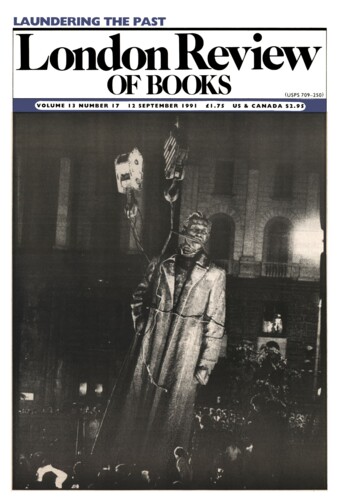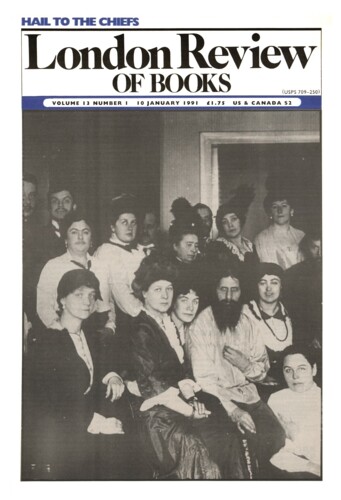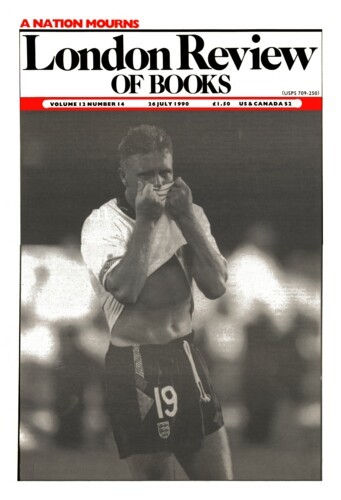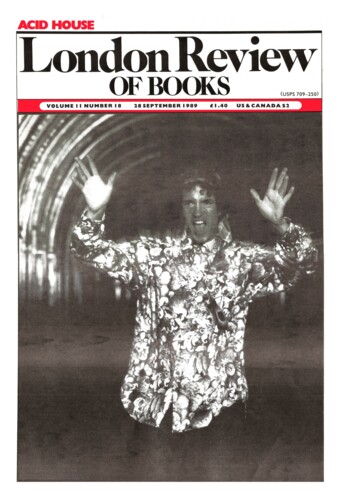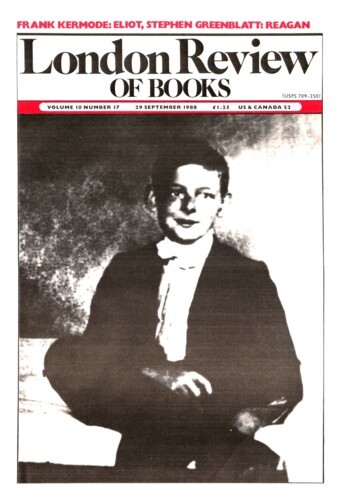Rainbows
Graham Coster, 12 September 1991
Had the Pentagon, back in the late Sixties, accepted Boeing’s tender for a massive new cargo aircraft for the United States Air Force, David Lodge would not have been able to write Paradise News. Instead, however, Lockheed got the contract, and Boeing were left with a redundant set of blueprints for the biggest furniture van never built. To save all that development money going to waste, they came up with a blindingly simple solution: fill it with seats, and call it an airliner. Thus was the Boeing 747 born, and now David Lodge has written what may, in socio-historical terms, be the first post-Jumbo Jet novel. Just as Wordsworth and Ruskin in the last century predicted and fulminated against the social implications of the new railways’ capacity for moving hordes of people into somewhere like the Lake District, so a newer mass translation of the populace is behind Paradise News: nowadays the wide-bodied jet enables hundreds, thousands, hundreds of thousands of us all of a sudden to be the other side of the world, and Lodge to beam a whole plane-load of people to Hawaii for a fortnight.
